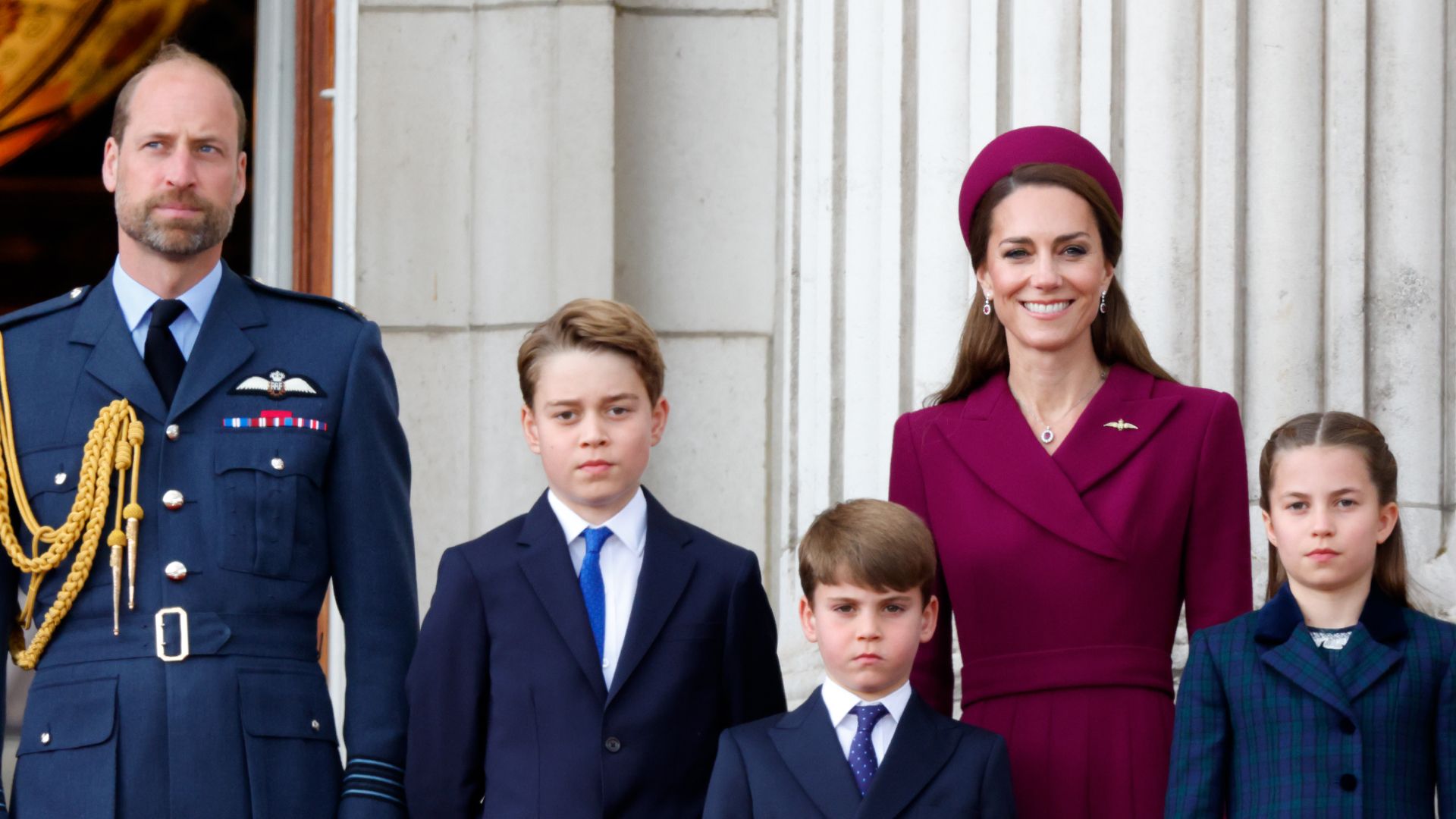Why Prince William May Not Invite Princess Charlotte and Prince Louis to Be Working Royals

When the time comes for Prince William to ascend the throne, the monarchy he inherits could look very different from the one his grandmother, the late Queen Elizabeth II, presided over. In recent weeks, royal watchers and commentators have reignited a debate about the future shape of “The Firm,” and one particular claim has sparked widespread attention. According to a royal expert, Prince William is unlikely to invite his younger children — Princess Charlotte and Prince Louis — to become working royals once he is king.
The suggestion, though unconfirmed, speaks to a broader vision of a “slimmed-down monarchy” that both William and his father, King Charles III, have reportedly supported for years. It raises profound questions about the direction of the royal family, the roles of its younger members, and the challenges of balancing tradition with modern expectations.
A Changing Royal Model
For much of the twentieth century, the royal family operated with a wide circle of working members. Cousins, aunts, and even more distant relatives would attend public events, open hospitals, and carry out charity work under the banner of the Crown. It was not unusual for royal calendars to be filled with hundreds of engagements, supported by a network of family members who shared the workload.
But the financial and cultural climate of the twenty-first century has shifted dramatically. Taxpayer funding of royal activities is under greater scrutiny, and public opinion polls consistently show that younger generations in Britain are less attached to the monarchy as an institution. Against this backdrop, both Charles and William have voiced intentions to streamline the working royal roster, reducing it to a core group of senior figures.
Currently, that “core group” includes King Charles, Queen Camilla, Prince William, Princess Catherine, and, in time, Prince George. The exclusion of Charlotte and Louis from that list may not mean a rejection of royal tradition outright, but rather an acknowledgment that a smaller, more focused monarchy is more sustainable in today’s political and cultural landscape.
The Expert’s Claim
The latest debate stems from commentary by a royal expert who argued that William is unlikely to extend working royal roles to his two younger children. Instead, the expert suggested, Charlotte and Louis will retain their titles but not the official duties that come with them.
The reasoning is twofold. First, the monarchy is under pressure to justify its costs and relevance, particularly in an era of austerity and shifting national identity. Second, William himself reportedly wants to protect his younger children from the intense public scrutiny and pressures of royal duty.
In other words, Charlotte and Louis may grow up in the spotlight — but without the expectation of attending hundreds of ribbon cuttings, charity galas, and diplomatic receptions on behalf of the Crown.
Lessons From History
This approach would not be unprecedented. History offers examples of younger royal siblings who struggled to find meaningful roles within the royal hierarchy. Prince Andrew, Duke of York, once a high-profile working royal, saw his career collapse amid scandal and changing public expectations. Princess Margaret, the Queen’s younger sister, often struggled with the limitations of her position — neither destined for the throne nor free to live entirely as a private citizen.
By keeping Charlotte and Louis outside the official “working” structure, William may hope to avoid repeating these patterns. Instead of being defined by their royal titles, they may be encouraged to pursue independent careers, much like Princesses Beatrice and Eugenie, who balance private employment with occasional royal appearances.
What It Could Mean for Charlotte and Louis
For Princess Charlotte, now a visible figure at royal ceremonies and national events, the idea of not being a working royal could reshape her future. While she currently enjoys immense public affection, her adult life may be closer to that of a celebrity adjacent to the monarchy, rather than a full participant in its machinery.
For Prince Louis, the youngest of William and Catherine’s children, the dynamic could be even more pronounced. Known to the public for his cheeky expressions and playful antics at public events, Louis may find himself enjoying a freer adolescence and adulthood than previous royal children ever experienced. Without the constraints of constant duty, he may pursue passions in academia, the arts, or even business.
Public Reactions and Debate
The prospect of a slimmer monarchy has been met with mixed reactions. Supporters argue that it is a sensible, modern reform that reflects changing times. Why, they ask, should the public fund dozens of minor royals whose roles may be largely ceremonial?
Critics, however, caution that such a move risks diminishing the monarchy’s visibility and charitable impact. For decades, the sheer number of working royals allowed the family to cover events across the United Kingdom, bringing attention and resources to hundreds of organizations. A smaller circle of royals, they fear, could leave gaps in public engagement.
Moreover, there is an emotional dimension to consider. The British public has long shown deep affection for royal children, and the thought of Charlotte and Louis being absent from future official duties may feel like a loss of continuity.
William’s Balancing Act
For Prince William, the decision — if indeed he is leaning in this direction — reflects the delicate balancing act of his future reign. On one hand, he must honor tradition and maintain the monarchy’s symbolic role in national life. On the other, he must adapt to a society that demands accountability, transparency, and modernity.
William has often spoken about wanting his children to have as normal a life as possible. Limiting the royal workload to himself, Catherine, and eventually George may be the most effective way to shield Charlotte and Louis from the same pressures that once plagued his own youth.
A Monarchy in Transition
The future of the monarchy has always been shaped by both circumstance and personality. Queen Elizabeth II’s long reign provided stability and continuity, but her successors face a different world — one that questions the very relevance of hereditary privilege.
Whether or not Charlotte and Louis become working royals may seem like a small detail in the larger scheme of history. Yet it symbolizes a broader shift: from monarchy as an expansive family enterprise to monarchy as a tightly focused institution, designed for survival in the twenty-first century.
As Prince William prepares for the crown, every decision he makes about his children will be scrutinized not only for what it means to them personally, but for what it says about the future of the monarchy itself.





